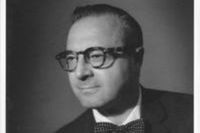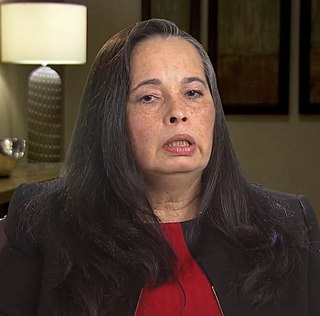
Francis Albert Sinatra was an American singer and actor. Nicknamed the "Chairman of the Board" and later called "Ol' Blue Eyes," he is regarded as one of the most popular entertainers of the mid-20th century. Sinatra is among the world's best-selling music artists, with an estimated 150 million record sales globally.

Martin Luther King Jr. was an American Baptist minister, activist, and political philosopher who was one of the most prominent leaders in the civil rights movement from 1955 until his assassination in 1968. King advanced civil rights for people of color in the United States through the use of nonviolent resistance and nonviolent civil disobedience against Jim Crow laws and other forms of legalized discrimination.

Harry Belafonte was an American singer, actor, and civil rights activist who popularized calypso music with international audiences in the 1950s and 1960s. Belafonte's career breakthrough album Calypso (1956) was the first million-selling LP by a single artist.

Harry "Sweets" Edison was an American jazz trumpeter and a member of the Count Basie Orchestra. His most important contribution was as a Hollywood studio musician, whose muted trumpet can be heard backing singers, most notably Frank Sinatra.

Beat Street is a 1984 American dance drama film featuring New York City hip hop culture of the early 1980s. Set in the South Bronx, the film follows the lives of a pair of brothers and their group of friends, all of whom are devoted to various elements of early hip hop culture, including breakdancing, DJing and graffiti.
The Havana Conference of 1946 was a historic meeting of United States Mafia and Cosa Nostra leaders in Havana, Cuba. Supposedly arranged by Charles "Lucky" Luciano, the conference was held to discuss important mob policies, rules, and business interests. The Havana Conference was attended by delegations representing crime families throughout the United States. The conference was held during the week of December 22, 1946, at the Hotel Nacional. The Havana Conference is considered to have been the most important mob summit since the Atlantic City Conference of 1929. Decisions made in Havana resonated throughout US crime families during the ensuing decades.

Judith Exner was an American woman who claimed to be the mistress of U.S. Senator, then U.S. president John F. Kennedy and Mafia leaders Sam Giancana and John Roselli. Several aspects of her claim of having known Kennedy have been verified by documents, phone records, and testimony. She was also known as Judith Campbell Exner, and Judith Campbell.

Stanley David Levison was an American businessman and lawyer who became a lifelong activist in socialist causes. He is best known as an advisor to and close friend of Martin Luther King Jr., for whom he helped write speeches, raise funds, and organize events.

Dora Lizette Irizarry is a senior United States District Court Judge of the United States District Court for the Eastern District of New York.
Jack O'Dell was an African-American activist writer and communist, best known for his role in the civil rights movement of the 1950s and 1960s. During World War II, he was an organizer for the National Maritime Union. He was also involved with the Communist Party USA (CPUSA) and the Southern Christian Leadership Conference (SCLC) as well as working with Martin Luther King Jr.

The D.C. Armory is an armory and a 10,000-seat multi-purpose arena in the eastern United States, located in Washington, D.C., east of the U.S. Capitol building. Managed by the Washington Convention and Sports Authority, the Armory was constructed and opened in 1941, as the headquarters, armory, and training facility for the District of Columbia National Guard. In recent years it has also become a venue for a broad range of events. Adjacent to the northeast is RFK Stadium, which opened in 1961.

The Rat Pack is a 1998 American HBO made-for-television drama film about the Rat Pack. The movie stars Ray Liotta as Frank Sinatra, Joe Mantegna as Dean Martin, Don Cheadle as Sammy Davis Jr., and Angus Macfadyen as Peter Lawford. Despite his membership in the Pack, Joey Bishop is given minimal screen time, while John F. Kennedy, depicted as an on-and-off friend of Sinatra's, is given a more central role.
Jake Holmes is an American singer-songwriter and jingle writer who began a recording career in the 1960s.

The Chairman is a 1969 spy film starring Gregory Peck. It was directed by J. Lee Thompson. The screenplay was by Ben Maddow based on a novel by Jay Richard Kennedy.
David Jeffries Garrow is an American author and historian. He wrote the book Bearing the Cross: Martin Luther King, Jr., and the Southern Christian Leadership Conference (1986), which won the 1987 Pulitzer Prize for Biography. He also wrote Liberty and Sexuality (1994), a history of the legal struggles over abortion and reproductive rights in the U.S. prior to the 1973 Roe v. Wade decision, Rising Star: The Making of Barack Obama (2017), and other works.
Irwin Sheppard "Steve" Binder is an American producer and director. He found success behind the camera on television shows showcasing music, when he was only in his early 20s. He was also influential in creating music programs with racially and ethnically diverse casts, featuring a variety of musical styles.

Frank Sinatra had many close relationships throughout his life. He was married four times and had at least six other notable relationships in between. He had three verified children, as well as more than one of questionable paternity.

The inauguration of John F. Kennedy as the 35th president of the United States was held on Friday, January 20, 1961, at the East Portico of the United States Capitol in Washington, D.C. This was the 44th inauguration and marked the commencement of John F. Kennedy's and Lyndon B. Johnson's only term as president and vice president. Kennedy was assassinated 2 years, 306 days into this term, and Johnson succeeded to the presidency.
Jules Leonard "Buddy" Kaye was an American songwriter, lyricist, arranger, producer, and author. His songs were recorded by top performers, including Frank Sinatra, Bob Dylan, Sarah Vaughan, Dinah Washington, Ella Fitzgerald, The McGuire Sisters, Glenn Miller, Sammy Kaye, Perry Como, Elvis Presley, Charles Aznavour, Tony Bennett, Cliff Richard, Pat Boone, Harry Belafonte, Bobby Darin, Little Richard, Barry Manilow, Karen Carpenter, Diana Krall, and Dusty Springfield. He scored number-one hits on the Billboard charts in 1945 with "Till The End Of Time", recorded by Perry Como, and in 1949 with "'A' You're Adorable ", recorded by Como and The Fontane Sisters. Among his most recognizable tunes in pop culture are the theme songs to the Famous Studios theatrical cartoons Little Lulu and Little Audrey; the international hit song "Speedy Gonzales", recorded by Pat Boone; and the co-written theme song to the television series I Dream of Jeannie. In 1976, he won a Grammy Award for best children's album for his production of The Little Prince, narrated by Richard Burton.

Harry Howard Wachtel was a New York lawyer and businessman who worked closely with Martin Luther King Jr., Clarence Benjamin Jones, and others within the Civil Rights Movement. Wachtel founded the Research Committee, an influential group within King's inner circle that advised King on political and social issues, and helped provide King and the movement with legal and financial connections.













